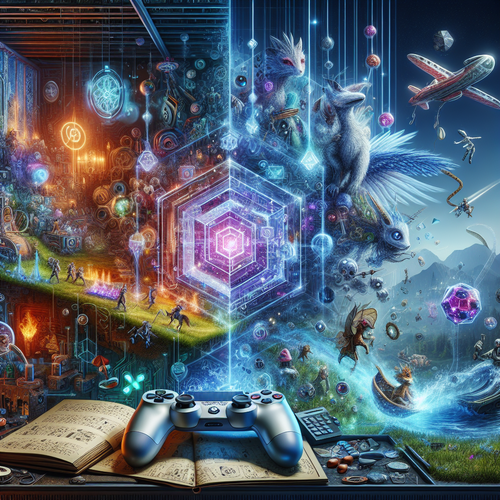
How Quantum Computing Will Change the Gaming Industry
How Quantum Computing Will Change the Gaming Industry
Quantum computing is on the verge of revolutionizing various industries, and gaming is no exception. As developers seek to push the boundaries of realism, gameplay, and storytelling, quantum technology offers unprecedented opportunities. In this article, we will explore how quantum computing may transform the gaming industry.
The Basics of Quantum Computing
Before diving into gaming, let’s clarify what quantum computing is. Unlike classical computers, which process information in bits that represent 0s and 1s, quantum computers utilize qubits. These qubits can exist in multiple states simultaneously, enabling them to perform complex calculations at speeds unattainable by today’s supercomputers.
Enhanced Graphics and Realism
One of the most exciting prospects of quantum computing in gaming is the potential for enhanced graphics. Imagine games with stunning visuals that respond dynamically to player inputs. Quantum computing allows for:
- Real-Time Ray Tracing: Quantum algorithms could improve ray tracing techniques, creating real-time realistic lighting and reflections that change as players interact with the environment.
- Procedural Generation: Use of quantum computing can enable complex procedural generation, creating vast and unique worlds that evolve based on player choices.
Advanced AI Behavior
Artificial intelligence is integral to modern gaming, and quantum computing could enhance AI behavior dramatically:
- More Complex NPCs: Non-player characters (NPCs) can exhibit more lifelike behaviors, adapting to player actions in a far more sophisticated manner.
- Dynamic Storytelling: Games could leverage quantum algorithms to create stories that evolve unpredictably based on the player’s choices, making each playthrough unique.
Complex Simulations and Game Mechanics
Quantum computing enables developers to create intricate mechanics and simulations:
- Physics Simulations: Realistic physics could be achieved via quantum models, allowing for gameplay experiences that mimic real-world laws.
- Game Balancing: Quantum algorithms could analyze vast datasets in real-time to ensure game balance, adjusting difficulty and mechanics dynamically based on player performance.
Challenges and Considerations
While the prospects for quantum gaming are thrilling, several challenges lie ahead:
- Access and Infrastructure: Quantum computing technology is still in its infancy, and creating accessible platforms for game developers remains a challenge.
- Cost: The expense of developing quantum-enabled games may be high initially, impacting game pricing and availability.
Conclusion
Quantum computing holds great promise for revolutionizing the gaming industry. With potential improvements in graphics, AI behavior, and game mechanics, the future of gaming may be more immersive and innovative than ever before. As this technology progresses, we will witness a new era of gaming that blends creativity with unprecedented computational power. For insights on related topics, check out our post on Exploring the Future of AI in Gaming.













